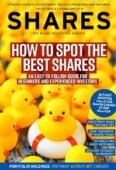Archived article
Please note that tax, investment, pension and ISA rules can change and the information and any views contained in this article may now be inaccurate.
Coming soon: a new way to invest in property

From summer 2017 onwards you could have a brand new option when it comes to investing in real estate. It will be a bit like the AIM or Main Market stock exchange, but only for property.
Private investors have traditionally relied on investment funds to invest in commercial property. A plan is now in the works to launch a new exchange whereby you can build your own self-selected portfolio of individual office blocks, retail parks or leisure facilities.
The International Property Securities Exchange or IPSX Prime, as it will be called, is currently in the process of securing regulatory approval and hopes to launch in mid-2017.
A global first
IPSX Prime aims to be the first dedicated exchange anywhere in the world for the admission of single commercial property assets or ‘single asset vehicles’ through the issue of shares.
The venture recently recruited the chief executive of Aviva Investors’ global real estate arm, Ian Womack, as a key advisor and he tells Shares IPSX will ‘bring a new dimension to real estate investing’.
An Englishman’s home is his castle so the saying goes and our obsession with property shows no signs of abating. Womack says with his tongue firmly wedged in his cheek that ‘everyone is a real estate expert’.
Chief executive Cyril Theret, who helped develop PLUS Markets, a forerunner to the current NEX Exchange, says IPSX can democratise access to the property asset class.
The liquidity problem
Theret claims the only current means of securing exposure is through blended funds whereas IPSX will offer ‘guaranteed liquidity in the assets you choose’.
The liquidity question, i.e. how easy an asset is to buy and sell, is a key one when it comes to investing in property. It is an issue currently being examined by the City regulator, the Financial Conduct Authority (FCA).
Investors in open-ended property funds, in particular, face a fundamental problem. They want to be able to offload their holding in a fund whenever they want but fund managers cannot sell the underlying property assets fast enough to meet these redemptions. As a result, property funds keep a cash buffer on hand.
During periods of market stress, such as in the wake of the Brexit vote in June 2016, these buffers can come under pressure. Funds can be forced to suspend trading and prevent investors from taking their money out.
Interestingly, one of the solutions proposed by the FCA is to develop a secondary market in units of open-ended funds.
Secondary market option for property
IPSX provides a secondary market option in property, if not in funds specifically.
According to Theret the exchange is in talks with market makers and stockbrokers to provide access and liquidity while it secures ‘Recognised Investment Exchange’ (RIE) status from the FCA.
He expects to go live with two market makers and says IPSX will have ‘typical UK equity market infrastructure’ with an ecosystem of brokers, market makers, legal advisers and fund managers.
Theret says: ‘There will be transparency around the asset you are buying into. You are essentially buying into the management team of the asset and their ability to manage it on your behalf as well as the income characterteristics it enjoys. And there will always be a price available if you want to sell.’
He notes property as an asset class ‘is very well understood’ by the investment community.
Crucially, assuming IPSX achieves RIE status; its securities will be eligible for inclusion in a tax-efficient ISA or SIPP. Although it is not yet clear which, if any, individual providers will allow you to invest in IPSX through their platforms.
Womack adds: ‘The timing for investing in property is great. In a low interest rate environment people want that yield and this will broaden the sphere of opportunity for investors.’
Theret explains the exchange is working with strategic backers such as real estate investment trust British Land (BLND) and hopes to draw on Womack’s near 40-year experience in real estate to develop a pipeline of listings.
Looking to list iconic assets
Listings will have to meet a minimum 25% free float when they float on the exchange, meaning at least of quarter of the shares have to be owned by public investors.
Theret adds that listings are likely to include sizeable assets initially such as big shopping centres or retail parks, leisure centres or large office blocks in the City. Or in his words, ‘iconic assets which make you think “I want to own a share of this”.’
The idea of being your own property tycoon might be enticing but investors should be aware of the risks of investing in a single asset.
If the retail park in which you own shares is in a town which suddenly sees a significant number of job losses, for example, then footfall could suffer and the value of your investment could slump.
Equally if a business goes bust and can’t pay its rent on its space in an office block, investors could again be left out of pocket.
Nonetheless, IPSX could represent an interesting alternative for investors assuming it receives the regulatory green light. (TS)
Important information:
These articles are provided by Shares magazine which is published by AJ Bell Media, a part of AJ Bell. Shares is not written by AJ Bell.
Shares is provided for your general information and use and is not a personal recommendation to invest. It is not intended to be relied upon by you in making or not making any investment decisions. The investments referred to in these articles will not be suitable for all investors. If in doubt please seek appropriate independent financial advice.
Investors acting on the information in these articles do so at their own risk and AJ Bell Media and its staff do not accept liability for losses suffered by investors as a result of their investment decisions.
Issue contents
Big News
- JD Sports is a knock-out performer
- FCA cracks down on market abuse
- Mothercare success likely to be shortlived
- Why Motif Bio’s share price could jump soon
- BHP is the latest target for activist investors
- Sepura deal under UK regulatory spotlight
- Royal Dutch Shell faces bribery allegations
- Robert Walters lifted by City jobs boost
- Still time to enjoy the rally in US stocks

 magazine
magazine









